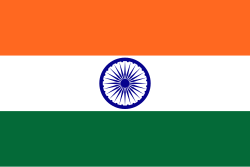Role and function
The Civil engineering department of Indian Railways is managed by IRSE cadre which is one of the oldest services of India. These officers are responsible for the maintenance of all fixed assets of Indian railways, i.e. Track, Bridges, Buildings, Roads, Water supply, land etc. Those fixed assets are 45% of the total assets of Indian Railways. In addition to maintenance of existing assets, IRSE officers are responsible for the construction of new assets such as new lines, gauge conversion, doubling and other expansion and developmental works in Railways. They are also responsible for the safety and punctuality of Indian Railways.
Recruitment to service is done on the basis of "Engineering Services" examination conducted by the Union Public Service Commission every year in January. The number of new recruits varies each year. Presently, intake is about 45 probationers per year.
An aspirant is not necessarily a Civil Engineering graduate. Indeed he needs to appear for the Civil Engineering stream in Engineering services exam and become qualified.
After recruitment, the probationer is given 18 months' intensive training in various Railways establishments under the guidance of Indian Railways Institute of Civil Engineering, Pune (IRICEN).
A young probationer, after 18 months of rigorous and multi-dimensional training, is posted as Assistant Divisional Engineer (ADEN) which has historically been called AEN (Assistant Engineer) and can rise up to Chairman Railway Board, ex officio Principal Secretary to Government of India. Normally, all the IRSE officers rise up to a minimum level of Additional General Manager or Principal Chief Engineer or Chief Administrative Officer (Construction) rank in the Railways which is equivalent to Additional Secretary to the Government of India. The civil engineering department, at the railway board level, is headed by Member Infrastructure (ex officio Secretary to the Government of India) which is the highest specialized post for an IRSE officer.
Theoretically, an IRSE officer is on duty 24 hours a day, 365 days a year.
Organisation
There are about 1958 serving officers in the IRSE. The management of department has three levels.
Apex level
This level dictates major policies pertaining to India’s rail infrastructure. At its helm at the Ministry/Railway Board level is the M-Infra (Member-Infrastructure) & ex-officio Secretary to the Government of India, who works in tandem with dedicated Special Secretary to the Government of India ranking Additional Members for Civil Engineering, Works, Bridges, Station Development, and Land & Amenities in addition to Principal Executive Directors and Executive Directors holding the rank of Additional Secretary and Joint Secretary to the Govt of India respectively.
Zone level
The Indian Railways has 18 Zonal Railways with an average track length of about 4000 km and average staff strength of about 80,000 headed by GMs. The Zonal Organizational structure of Engineering department is headed by the Principal Chief Engineer (PCE) ranked equivalent to an Additional Secretary in the Union Govt, with various designated Chief Engineers (equivalent to Joint Secretaries to the Govt of India) for track, bridge, planning, track machines, general matters etc.
In addition, each Zonal Railway has a construction unit headed by a Chief Administrative Officer who is ranked at par with an Additional Secretary to the Govt of India. He is responsible for major construction works such as new lines, doubling, gauge conversions etc. He works in unison with a number of chief engineers (construction), who hold the rank of Joint Secretaries to the Govt of India.
Division level
Each Zone is divided into 3-7 Divisions each with an average track length of about 1000 km and staff strength of about 15000 headed overall by DRM (Divisional Railway Manager). These are basic units for execution of works.
At this Level, the Engineering department is headed by Sr.DEN/C (Senior Divisional Engineer, Co-ordination). A division consists of 2 to 5 sections which are managed by a sectional Sr.DEN (Senior Divisional Engineer) or DEN (Divisional Engineer). A new probationer joins as Assistant Divisional Engineer and commands about 500 to 1000 staff spread over 200 km of jurisdiction.
This page is based on this
Wikipedia article Text is available under the
CC BY-SA 4.0 license; additional terms may apply.
Images, videos and audio are available under their respective licenses.

